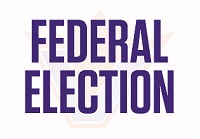IN an election campaign where the day-to-day movements of the federal leaders are covered by the media like paparazzi, a key aspect of why those leaders are on the hustings to begin with – the party’s promises and policies – has largely been subsumed.
Indeed, a new study from the Angus Reid Institute finds voters in Canada three times as likely to say that they will base their vote on platforms over personalities. But whose platforms are resonating most with voters? And are declared voters aligned with their parties’ own positions?
The survey canvassed the electorate on a number of main themes and party promises – and finds certain pledges enjoy vastly more support than others.
The survey canvassed the electorate on a number of main themes and party promises – and finds certain pledges enjoy vastly more support than others.

More Key Findings:
- A majority of Canadians (57%) say they would prefer to continue running deficits in order to fund social programs and job growth, while four-in-ten (43%) say the next government should focus on balancing the budget within the next five years
- The Liberal plan to make a $6 billion investment over four years as a “down-payment” toward a Pharmacare program is preferred (46%) to the NDP’s plan to initiate and fund Pharmacare with $10 billion per year starting in 2020 (32%). Four-in-ten Conservatives prefer the Liberal plan (44%) while the same number (43%) prefer the government not move toward universal Pharmacare
- Canadians continue to be deeply divided about pipelines. An equal number say that the next government should increase pipeline capacity (35%), continue the current approach (35%), or do less to get pipelines built (31%)
- Given the choice between two proposals aimed at housing affordability, lower-income Canadians prefer a Liberal proposal to build 100,000 new low-income and senior residences, while wealthier Canadians prefer a Conservative proposal to increase the amortization period for insured mortgages












